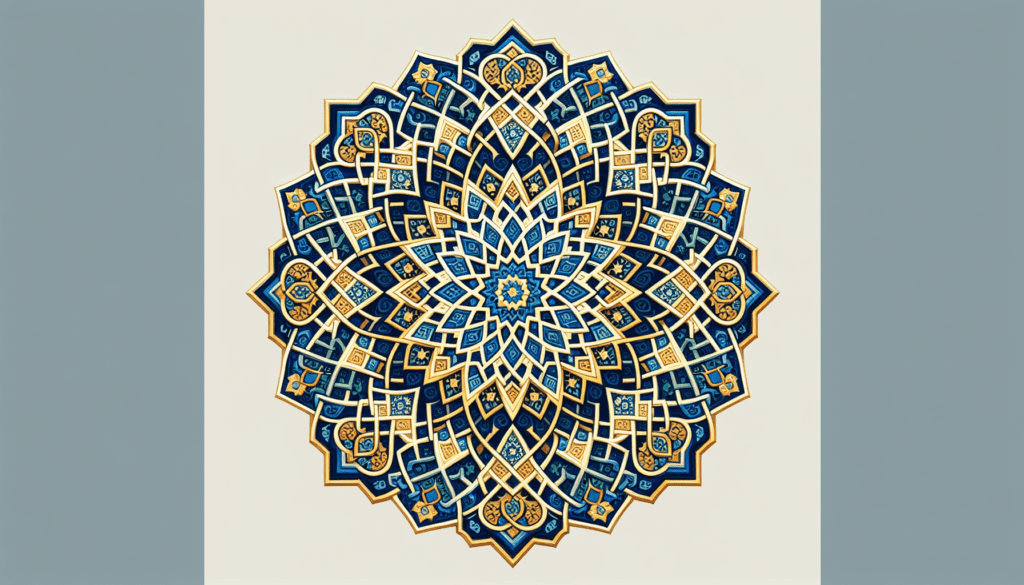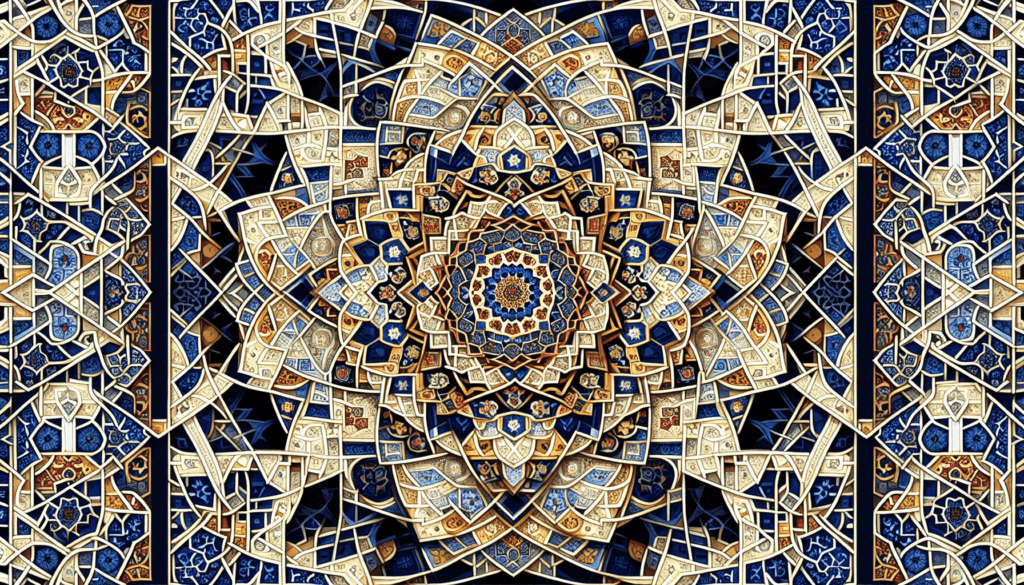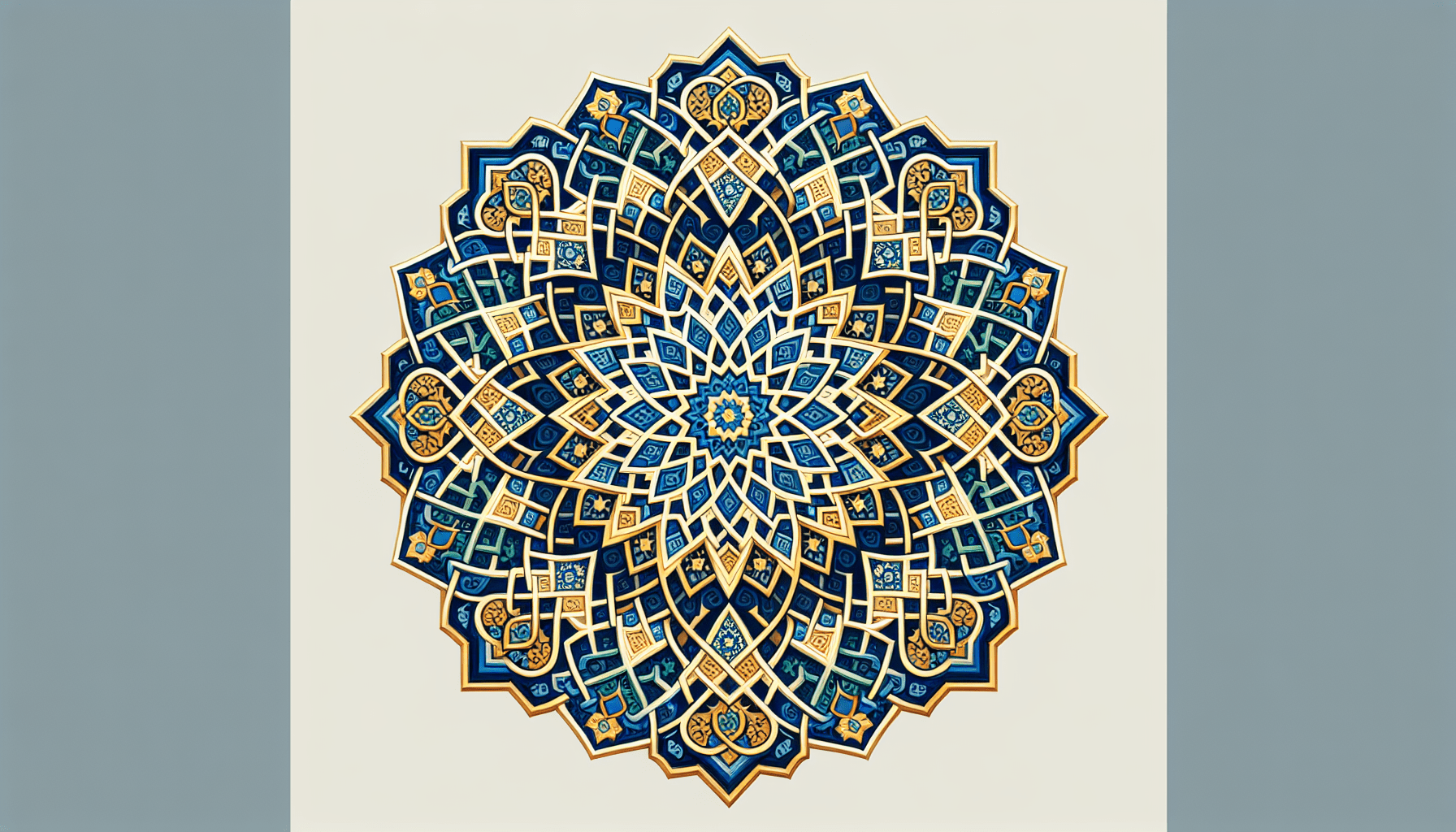Master of Arts in Islamic Studies (MAIS) offers a comprehensive curriculum designed to provide you with an in-depth understanding of Islamic theology, history, and culture. This advanced degree aims to equip you with the critical thinking skills and academic knowledge necessary to engage with complex religious, social, and political issues pertaining to the Islamic world. Through rigorous coursework, research opportunities, and interdisciplinary approaches, you will explore various aspects of Islamic studies, thereby preparing you for careers in academia, non-profit organizations, governmental agencies, and beyond. Have you ever considered deepening your understanding of Islamic culture, history, and religious practices at an advanced academic level? The Master of Arts in Islamic Studies (MAIS) offers a comprehensive opportunity for those interested in immersing themselves in the multifaceted world of Islam.
Understanding the Master of Arts in Islamic Studies (MAIS)
What is MAIS?
The Master of Arts in Islamic Studies (MAIS) is a graduate-level program designed to provide students with advanced knowledge and analytical skills centered on Islamic civilization. This program typically encompasses various disciplines such as theology, history, law, and culture, aiming for a profound and analytical comprehension of Islam and its societal impacts. Pursuing an MAIS can lead to careers in academia, religious leadership, community organization, and more.
Objectives of the MAIS Program
The primary goal of the MAIS program is to furnish students with an in-depth understanding of Islamic thought and practice. Students are equipped to critically analyze Islamic texts and traditions and to engage with contemporary issues facing the Muslim world. Additional goals include:
- Fostering critical thinking and analytical skills.
- Encouraging scholarly research and discourse.
- Equipping students to contribute to intercultural and interfaith dialogue.
Core Components of the MAIS Curriculum
The MAIS curriculum is structured to provide a blend of foundational and elective courses, allowing for a tailored academic journey that matches your interests. The program typically consists of:
- Core Courses: These are mandatory courses that lay the groundwork for your studies, usually covering key areas such as Qur’anic studies, Hadith, Islamic law, and history.
- Elective Courses: Students can choose from a range of subjects, including contemporary Islamic thought, Sufism, gender in Islam, and Islamic philosophy.
- Thesis or Comprehensive Exam: Depending on the institution, you might be required to complete a research thesis or pass a comprehensive examination to demonstrate your mastery of the subject.
MAIS Course Breakdown
Core Courses
Understanding the foundational pillars of Islam is crucial for any MAIS program. Core courses often include:
| Course Title | Description |
|---|---|
| Qur’anic Studies | Focus on the Quran’s language, themes, and interpretation methodologies. Examines its historical context and contemporary relevance. |
| Hadith Studies | Exploration of the Hadith literature, its collection, authentication processes, and its role in Islamic law and theology. |
| Islamic Jurisprudence (Fiqh) | Study of the principles and methodologies used in Islamic legal systems and the application of Islamic law in various contexts. |
| History of Islamic Civilization | Traces the history of Islamic societies from the 7th century to the present, highlighting cultural, political, and social developments. |
Elective Courses
Elective courses allow you to customize your learning experience based on your interests and career goals. Some possible electives include:
| Course Title | Description |
|---|---|
| Contemporary Islamic Thought | Analyzes modern interpretations and movements within Islam, including reformist and political perspectives. |
| Sufism | Examines the development, beliefs, and practices of Islamic mysticism, along with the study of key Sufi figures and texts. |
| Gender and Islam | Looks at the roles, rights, and contributions of women within Islamic societies, and contemporary feminist debates within Islam. |
| Islamic Philosophy | Focuses on major Islamic philosophers, their teachings, and their contributions to both Islamic and global thought. |

Admission Requirements
Academic Prerequisites
To be considered for admission into an MAIS program, students generally need to have a bachelor’s degree in a related field, such as Religious Studies, Middle Eastern Studies, or History. Some programs might also accept applicants from different backgrounds, provided they can demonstrate an interest and foundational knowledge in Islamic studies.
Language Proficiency
Given that primary sources in Islamic studies are often in Arabic, proficiency in Arabic is highly recommended. Some programs may require students to demonstrate a basic proficiency in Arabic upon admission or to undertake language courses as part of the curriculum.
Application Components
Typical application components include:
- Academic Transcripts
- Letters of Recommendation
- Personal Statement or Statement of Purpose
- Writing Sample
Career Opportunities for MAIS Graduates
Academia and Research
One of the primary career paths for MAIS graduates is academia. Graduates can pursue doctoral programs, conduct scholarly research, or teach at universities and colleges.
Religious Leadership
MAIS graduates are well-prepared for leadership roles within Muslim communities, including positions as imams, counselors, or educators in Islamic institutions.
Community and Non-Profit Organizations
Many MAIS graduates work in community organizations or NGOs that focus on issues relevant to the Muslim world, such as social justice, interfaith dialogue, and community development.
Government and International Relations
Your expertise in Islamic studies could also be valuable in various governmental agencies or international organizations that deal with the Muslim world. Roles could include policy analysis, cultural advising, or diplomatic missions.

Benefits of Pursuing an MAIS Program
Deepening Knowledge and Understanding
The MAIS program allows you to engage deeply with Islamic texts, traditions, and philosophies, providing a comprehensive understanding that is both broad and nuanced.
Enhancing Analytical and Research Skills
Through rigorous coursework and research projects, you will develop strong analytical and research skills, enabling you to critically engage with complex topics and contribute original insights to the field.
Career Advancement
An MAIS degree opens up numerous career opportunities, including academic positions, leadership roles in religious communities, and roles in international and non-profit organizations.
Challenges of Pursuing an MAIS
Intensive Study Requirements
The rigorous nature of the MAIS program requires a significant commitment of time and effort. Balancing coursework, research, and possibly language studies can be demanding.
Language Barriers
For those not already proficient in Arabic, the language requirement can pose an additional challenge. Many primary sources and significant scholarly works are in Arabic, making language proficiency essential for advanced study.
MAIS Program Structure at Various Institutions
Different institutions may offer unique specializations or distinctive approaches to their MAIS programs. Below are some general structural elements you might find:
| Institution | Unique Features | Duration | Language Requirement |
|---|---|---|---|
| University A | Focus on contemporary Islamic political thought | 2 years | Advanced Arabic |
| University B | Emphasis on historical texts and manuscripts | 2.5 years | Intermediate Arabic |
| University C | Integration with interfaith studies and community engagement | 2 years | Basic Arabic with language courses during the program |
How to Choose the Right MAIS Program
Consider Your Career Goals
Reflect on your career aspirations and choose a program that aligns with your goals. If you are aiming for an academic career, ensure the program offers robust research opportunities and access to scholarly resources.
Evaluate Faculty Expertise
The expertise and research interests of the faculty can significantly impact your academic experience. Investigate the faculty profiles and ongoing research projects to ensure they resonate with your interests.
Assess Program Flexibility
Some programs offer part-time or online options, which can be crucial if you need to balance your studies with other responsibilities. Additionally, check if the program allows for a concentration or specialization in areas that intrigue you.
Conclusion
The Master of Arts in Islamic Studies (MAIS) is an enriching and demanding academic endeavor that offers profound insights into the Islamic world. By equipping you with advanced knowledge and analytical skills, the program prepares you for a variety of fulfilling career paths that make significant contributions to academia, religious leadership, community organizations, and international relations. Choosing the right program is crucial and involves evaluating your career goals, faculty expertise, and program flexibility. Are you ready to embark on this transformative journey and become a specialist in Islamic studies?
By carefully considering the elements discussed in this article, you can make an informed decision about pursuing a Master of Arts in Islamic Studies. This academic journey not only enhances your understanding of Islam but also opens up a world of opportunities for professional and personal growth.

